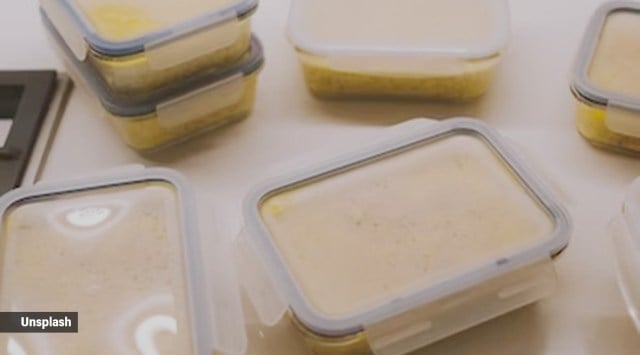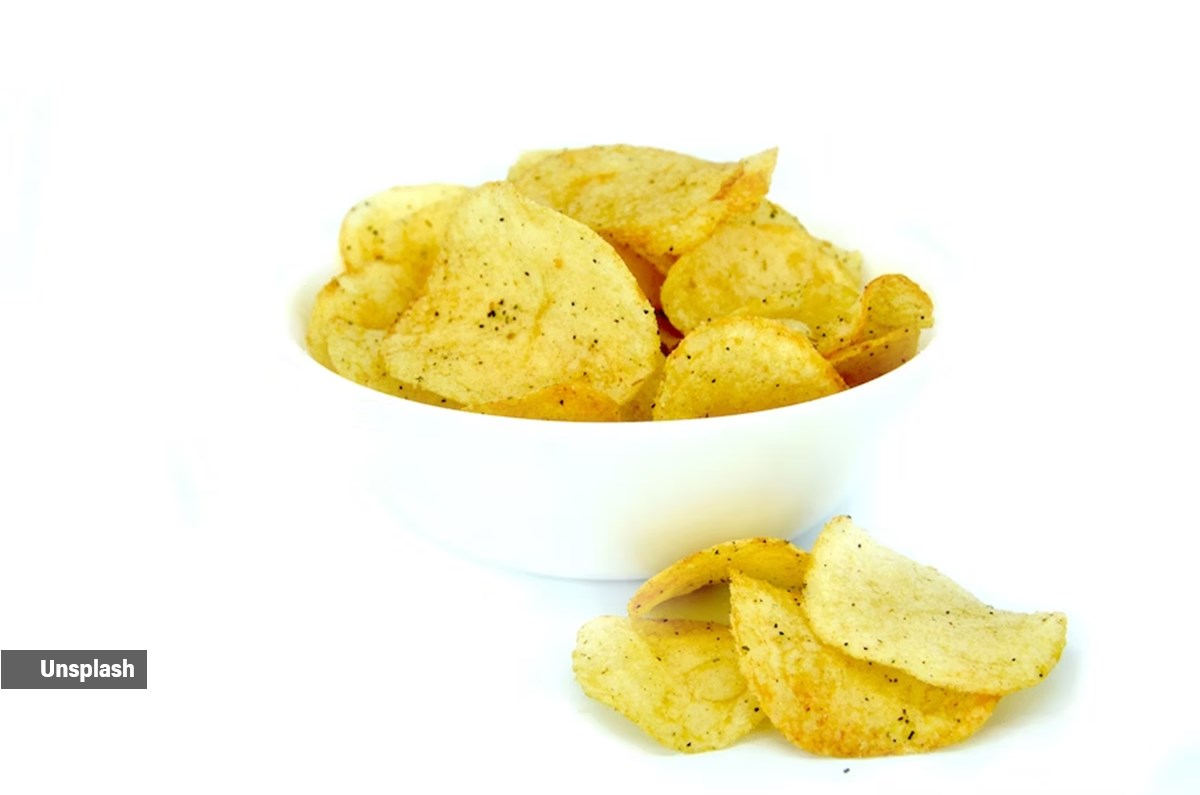📣 For more lifestyle news, click here to join our WhatsApp Channel and also follow us on Instagram
Is it safe to store food in plastic containers?
You must avoid using plastic containers that are old, scratched, or damaged as they may have a higher risk of leaching chemicals into food, according to Dr Praveen Jha, gastroenterologist at Lucknow's Regency Superspeciality Hospital
 The major issue against using plastic containers is the leaching of chemicals from the plastic into the food. (Source: Unsplash)
The major issue against using plastic containers is the leaching of chemicals from the plastic into the food. (Source: Unsplash)Our mothers love their stash of plastic dibbas (boxes). God, forbid you lose even a single of them, nobody would be able to save you from their wrath. But as much as they love them, is it even safe to consume the food stored in these plastic containers?
According to Dr Praveen Jha, gastroenterologist at Lucknow’s Regency Superspeciality Hospital, the safety of storing food in plastic containers depends on the type of plastic and its intended use. “Some plastics may release harmful chemicals when they come into contact with food, especially if they are heated or used for acidic or fatty foods,” he explains.
What are plastic food containers made of?
A common type of plastic that is used in plastic containers is PETE, fully known as polyethylene terephthalate, which is generally considered safe for single-use applications but not suitable for repeated use or heating.
Dr Jha recommends checking if the plastic is labeled as food-safe before using it.
What kind of plastic containers should be avoided? What are their alternatives?
While storing food in plastic containers may be common, the major issue against using them is the leaching of substances from the plastic into the food. Hence, foods that are hot, oily and acidic in nature must never be stored in plastic containers as they will encourage the migration of chemicals into them.
 Look for plastic containers labeled as “food-grade” or “BPA-free.” (Source: Unsplash)
Look for plastic containers labeled as “food-grade” or “BPA-free.” (Source: Unsplash)
You must avoid using plastic containers that are old, scratched, or damaged as they may have a higher risk of leaching chemicals into food, according to Dr Jha.
Some alternatives that can instead be used in storing food are containers made of glass, stainless steel, silicone, beeswax, and bamboo, among others, as they’re all made of non-toxic materials best for the storage of food.
What are some tips to keep in mind while storing food in plastic containers?
*Look for plastic containers labeled as “food-grade” or “BPA-free.” BPA (bisphenol A) is a chemical that has been linked to potential health risks.
*Avoid microwaving plastic containers as heat can accelerate the release of chemicals from plastic.
*Inspect plastic containers for cracks, scratches, or warping. Damaged containers are more prone to leaching chemicals and should be replaced.
*Follow manufacturer instructions as different plastic containers have varying guidelines for safe use, including temperature limits and dishwasher compatibility.
*Use plastic containers for short-term storage, such as leftovers that will be consumed within a day or two.
📣 For more lifestyle news, follow us on Instagram | Twitter | Facebook and don’t miss out on the latest updates!
📣 For more lifestyle news, click here to join our WhatsApp Channel and also follow us on Instagram


- 01
- 02
- 03
- 04
- 05

























